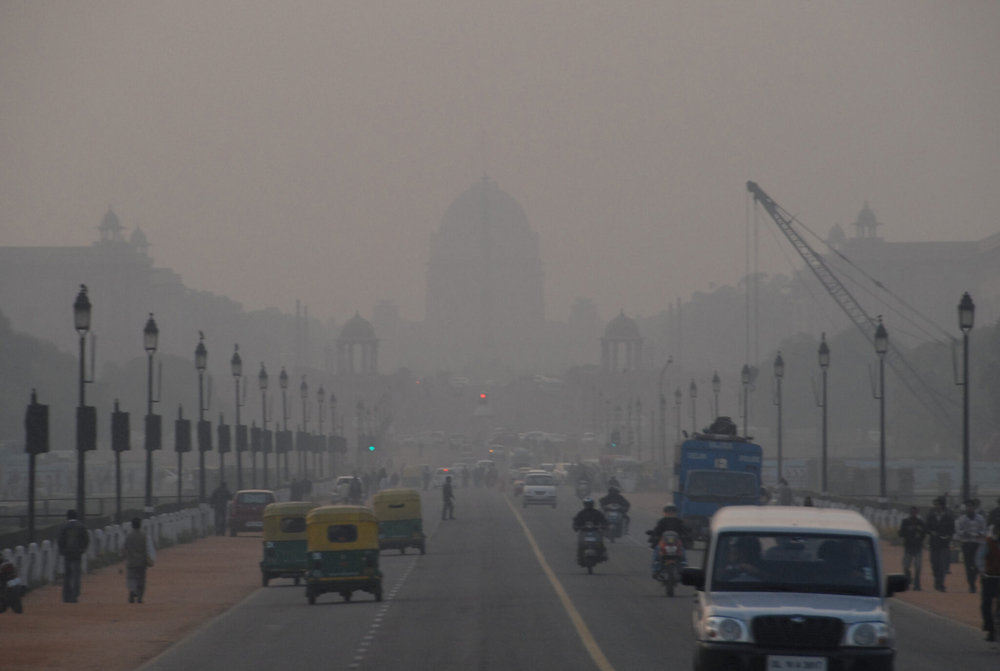Air pollution – it’s an insidious, invisible killer, more lethal than we ever realized. A groundbreaking study by an international team, spearheaded by the Max Planck Institute for Chemistry, rings alarm bells louder than ever before. The culprit? Fossil fuel emissions, an unseen danger lurking in the air we breathe.
Picture this: around 5.13 million lives lost globally each year – a figure that overshadows many global health crises. These are not just numbers; they represent hearts that stopped beating, breaths that ceased, futures cut short. It’s a mortality burden that’s a staggering 82% preventable, simply by phasing out fossil fuels.
Drilling down into the numbers, the heart of the problem (quite literally) lies in cardiometabolic conditions. Ischaemic heart disease, the kind that leads to heart attacks, is a major player, contributing to 30% of these deaths. Strokes and chronic obstructive pulmonary disease each add another 16%. And then there’s the undefined 20%, potentially linked to ailments like arterial hypertension and neurodegenerative diseases.
In India, the story of air pollution takes a particularly somber turn. Home to a staggering 2.18 million of the global deaths attributed to air pollution, the nation stands at a crossroads of public health and environmental policy. This isn’t just a statistic; it’s a clarion call for urgent action. Each of these deaths represents not only a life lost but a family shattered, a community burdened, and a nation grappling with the cost of progress. The dense smog that often blankets its cities is more than a visibility hazard—it’s a silent harbinger of heart diseases, strokes, and lung conditions, underscoring the dire need for India to embrace cleaner energy sources and stringent air quality measures.
Similiar Posts
Jos Lelieveld, a leading atmospheric chemist, puts it starkly, “This corresponds to 82% of the maximum number of air pollution deaths that could be averted by controlling all anthropogenic emissions”. It’s a clear message: the air we pollute today can come back to haunt us in the form of severe health issues.
The study employed an innovative relative risk model, delving deep into the exposure-response relationship across global ambient levels. By attributing cause-specific and all-cause mortality to long-term exposure to particulate matter and ozone, the research sheds light on the grim reality of our current trajectory.
But there’s a glimmer of hope. Cardiologist Thomas Münzel from University Medical Center Mainz points out the need to acknowledge air pollution as a significant cardiovascular risk factor, stating, “It is time now and of utmost importance to acknowledge air pollution as a significant cardiovascular risk factor”. This isn’t just about health; it’s about survival.
The study’s design is as meticulous as it is enlightening. The team used a data-constrained global atmospheric modeling method, distinguishing between various pollution sources. By simulating the phasing out of fossil fuel-related emissions, the research offers a roadmap to a healthier future, suggesting significant decreases in mortality rates.
And as Andy Haines, an epidemiologist at the London School of Hygiene & Tropical Medicine, emphasizes, “This study provides new evidence to motivate rapid fossil fuel phaseout”. The message is clear: replacing fossil fuels with clean, renewable energy isn’t just an environmental imperative; it’s a public health emergency.
As we continue to grapple with the consequences of our actions, this study serves as a stark reminder of the urgent need to rethink our relationship with the planet. The air we pollute today could be the very thing that harms us tomorrow. The choice is ours: continue down a path of destruction or pivot towards a cleaner, healthier future. For the sake of our planet and our health, let’s hope we make the right one.

















